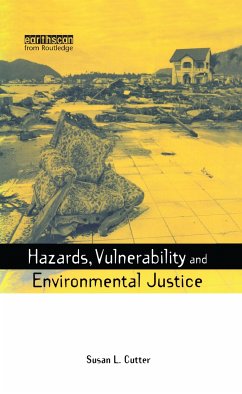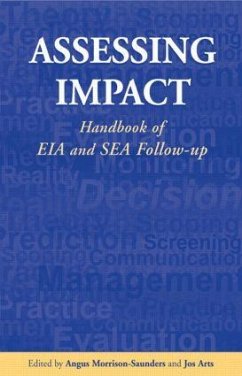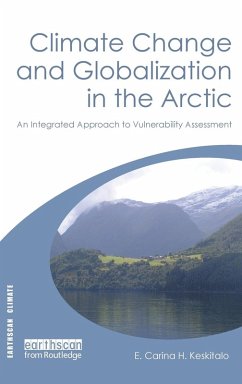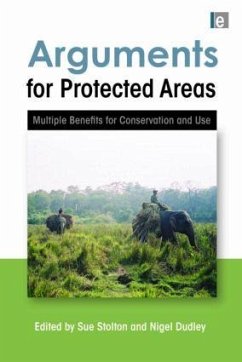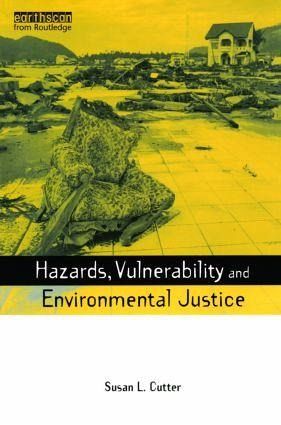
Hazards Vulnerability and Environmental Justice
Versandkostenfrei!
Versandfertig in 1-2 Wochen
73,99 €
inkl. MwSt.
Weitere Ausgaben:

PAYBACK Punkte
37 °P sammeln!
In a world of increasingly prominent hazards and disasters, from those with their genesis in natural events such as the South Asian tsunami, to human-induced atrocities and terrorist attacks, and the profound effects of climate change, this collection provides a timely assessment of these critical themes. Presenting the top selections from Susan L. Cutter 's twenty-five years of scholarship on hazards, vulnerability, and environmental justice, this collection brings together powerful and difficult-to-find literature, framed by a fresh introduction that maps out the terrain and draws out the sa...
In a world of increasingly prominent hazards and disasters, from those with their genesis in natural events such as the South Asian tsunami, to human-induced atrocities and terrorist attacks, and the profound effects of climate change, this collection provides a timely assessment of these critical themes. Presenting the top selections from Susan L. Cutter 's twenty-five years of scholarship on hazards, vulnerability, and environmental justice, this collection brings together powerful and difficult-to-find literature, framed by a fresh introduction that maps out the terrain and draws out the salient themes and conclusions. This essential collection is ideal for academics and students studying hazards, risk, disasters, and environmental justice across a range of disciplines.









